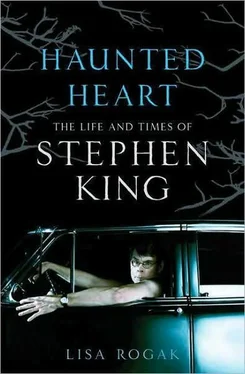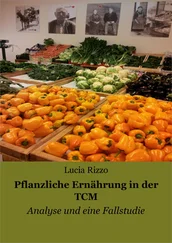He found that the only way to do that was to write about it.
In 1959, David got hold of an old mimeograph machine, and the two boys decided to publish a local newsletter. Selling it for a nickel, they wrote and distributed Dave’s Rag to their neighbors in West Durham. Dave wrote news stories about people in the neighborhood while Steve wrote reviews of his favorite TV shows and movies as well as a few short stories. The response was favorable, with most neighbors buying a few copies, but after a few months, Dave’s interest waned.
Steve wasn’t too disappointed, for that meant there would be more time for writing his own stories and reading. In West Durham, Steve began what would become a lifelong habit of taking long afternoon walks while his nose was stuck in a book. Both Ruth and Dave shared his love of reading—it wasn’t unusual to see the family sitting around the dinner table, each reading a paperback—but Steve devoured more books than his brother and mother combined. He got lost in the stories, but he was also starting to note how each author told the story and how he built suspense and made Steve care—or not care—about the characters. He learned something with each book he read, and he simply couldn’t get enough.
He also started to write as much as he read. Every free moment when he wasn’t in school or helping his mother with some of the chores, he was writing or reading.
When Ruth bought him a behemoth, secondhand Underwood typewriter for $35, he knew he had everything he needed to start on his path as a writer, and he began to submit his stories to the pulp thriller and mystery magazines he’d been reading for years. He wrote after school and on weekends, and during summer vacations he rarely left his attic bedroom. “I’d be upstairs during the summer pounding away in my underpants, streaming with sweat,” he said. He typed so much that the letter M broke off, and he had to write in the missing letters by hand on each manuscript page.
The more he wrote, the better he felt. He had a way to deal with the images and thoughts that he knew his family and society wouldn’t understand. His stories were full of blood and gore and inhumane impulses—just like the stories he loved to read—but writing them, getting them out, was better than keeping them inside.
“As a child, Stephen King saw and felt too much for his age,” said George Beahm, author of several books on King and his work. “Consider how sensitive children generally are: they don’t have a way to edit, to filter, to take a critical stance on experience around them. I would say that the reason why these images come out so powerfully in his fiction is because as a child he had no way to filter. Everything just came in, and it affected him deeply.”
His childhood friend Chris Chesley believes that Steve’s sense of isolation had as large an effect on his writing as the movies he saw, the books he read, and the murderous impulses he often felt. “His mother worked and his brother was older and off with his friends, so Steve spent a lot of time by himself,” said Chesley. “In that respect, he was different from many of us who knew him because he was more isolated than we were.”
Even though he had just started to submit stories to the pulp magazines of the day, Steve was calmly convinced of his talent and future success even at the age of fourteen. Chesley would sit with Steve in his friend’s bedroom, reading, writing, and smoking. They’d take turns at the typewriter, one reading a book while the other cranked out a couple of pages. One day, Chesley remembered, Steve finished his stint at the typewriter and glanced over at him with a cigarette dangling from his mouth.
“You know what I’m gonna do the first time I hit it big, Chris? I’m gonna get myself a great big Cadillac!” Steve would laugh, light another cigarette, and return to the typewriter, even though it was Chris’s turn.
Steve encountered a relative in Durham who reminded him of the way Granny Spansky had kept him spellbound for hours, though while his grandmother had captivated him because she reminded him of a fairy-tale witch, Uncle Clayton’s stories were what mesmerized young Steve. “Some of the best yarns in those days were spun by my uncle Clayton, a great old character who had never lost his childlike sense of wonder,” he said. “Uncle Clayt would cock his hunting cap back on his mane of white hair, roll a Bugler cigarette with one liver-spotted hand, light up with a Diamond match he’d scratch on the side of his boot, and launch into great stories, not only about ghosts but about local legends and scandals, family goings-on, the exploits of Paul Bunyan, everything under the sun. I’d listen spellbound to that slow down-east drawl of his and I’d be in another world.”
Uncle Clayton, who wasn’t really a relative, but a family friend, had a few other talents that kept Steve fascinated. The old man was able to track a bee from a flower to the hive—a skill called lining—and he knew how to dowse for water by using a Y-shaped piece of wood to locate a good place to dig for a well.
Steve had already started to file away the stories of these eclectic, eccentric relatives. He knew he might use them one day.
Writing was not only helping Steve to survive a childhood riddled with instability and poverty, but he was also beginning to use his skill to define himself and who he was. By the time Steve was fourteen, a few key facts had already cemented themselves in his young mind: Writing allowed him to forget the physical and emotional discomforts in his life, and it was good enough for someone to pay him for it. Yeah, it was his mother, but at least it was a start. The connection between writing and financial self-sufficiency had been made. He also knew that judging from the crowds at the movie theater and the popularity of books of scary tales, other people enjoyed being scared just as much as he did.
Rural Maine was filled with stories, and death was everywhere. And so, the general shape of Stephen King’s life and creative gifts were cast.
Even though Ruth thought her youngest son was a bit too intrigued by horror stories and movies, she herself enjoyed a really frightening story or movie. However, she despised what she called an Alfred Hitchcock ending, where, after getting a viewer sucked into the lives of the characters up on the silver screen, Hitch chose an ending that was deliberately murky and unclear. Young Steve filed that opinion away.
One day Steve asked his mother if she had ever seen a dead body. She nodded, then told him two stories.
The first time, she was standing outside the Graymore Hotel in Portland when a sailor jumped off the roof twelve stories above the street. “He hit the sidewalk and splattered,” she said.
The other time was while growing up in Scarborough. One day she went to the beach and saw a crowd of people standing on the shore and several boats attempting to go out to sea. A woman had been swimming, and a riptide had drawn her out to where she couldn’t swim back on her own. The boats were unable to reach her since the current was too strong. Ruth said, “People stood on the beach and listened to that woman scream for hours before she finally drowned.” It sounded like a story Steve would read in one of his E.C. comics, and it stuck with him for years.
Spurred on by his mother, Steve continued to write whenever he had a free moment. Though he had already begun to submit some of his stories to magazines, his work would be greeted by form rejection slips. So he decided to take matters into his own hand, and when he was fourteen, he wrote a sixteen-page novelization of the movie The Pit and the Pendulum, which had come out in 1961, starring Vincent Price and Barbara Steele based on the Edgar Allan Poe story. Steve typed up the story—replete with misspelled words—and added his own touches, remembering his mother’s advice to make up his own story, so much so that it didn’t come close to resembling the movie. He ran it off on an ancient copy machine, brought the copies to school, and hawked it to his classmates for a quarter apiece, since his mom had established that as the going rate. By the end of the day, he had a pocketful of quarters. He was suspended from school not because of plagiarism, but because his teachers and the principal thought he shouldn’t be reading about horror, let alone writing about it.
Читать дальше












